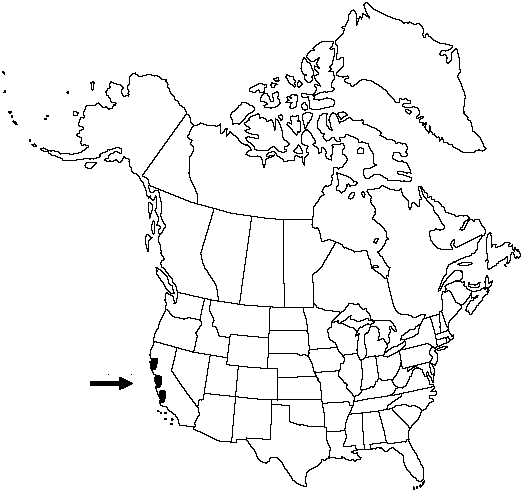Cupressus goveniana
J. Hort. Soc. London 4: 295. 1849.
Shrubs or small trees usually to 10 m, but to 50 m under favorable conditions, or bearing cones at as little as 2 dm on shallow hardpan soils; crown globose to columnar, dense or sparse. Bark smooth or rough, fibrous. Branchlets decussate, 1–1.5 mm diam. Leaves without abaxial gland or sometimes with embedded abaxial gland that does not produce drop of resin, not glaucous. Pollen cones 3–4 × 1.5–2 mm; pollen-sacs 3–6. Seed-cones globose, 1–2.5 (–3) cm, grayish brown, not glaucous; scales 3–5 pairs, smooth, umbo nearly flat at maturity. Seeds 3–4 (–5) mm, dark-brown to jet black, sometimes slightly glaucous.
Habitat: Coastal closed-cone pine forests, especially on sterile soils
Elevation: 60–800 m
Discussion
Populations from the three regions of Cupressus goveniana —north coast, Santa Cruz Mountains, and Monterey Peninsula—differ in foliage and seed characters and have been treated as varieties or species; additional interpopulational variation occurs within these regions. Trees from Santa Cruz Mountain populations may have originated through hybidization with C. sargentii (E. Zavarin et al. 1971). The pygmy forests of this species and Pinus contorta Douglas ex Loudon on the shallow hardpan soils of coastal terraces of the Mendocino white plains are a remarkable example of phenotypic plasticity.
Selected References
None.
Lower Taxa
"thick" is not a number.
